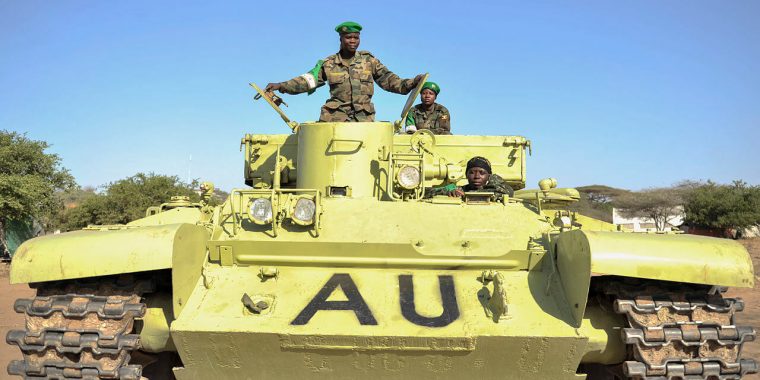When one asks a powerful neighbour to come to aid and defend one with his forces… These forces may be good in themselves, but they are always dangerous for those who borrow them, for if they lose you are defeated, and if they conquer you remain their prisoner.
— Niccolo Machiavelli
Each time I read about multi-national African forces such as AMISOM, the above statement from Machiavelli comes to mind.
Too bad the Somali leadership refuses to realize this, and time and again, they keep allowing neighbours such as Ethiopia and Kenya to interfere in Somalia’s internal affairs.
Can Somalia Trust AMISOM?
Poverty And Power
Oscar Lewis, in his The Culture of Poverty, argues that poverty, though systemic and generational, fosters a value system of its own. Thus, poverty becomes a way of life in its own right. In words of Lewis, people affected by poverty tend to have:
a strong feeling of marginality, of helplessness, of dependency, of not belonging. They are like aliens in their own country, (and) have very little sense of history.
Does this theory about poverty being a self-perpetuating way of life also hold true in case of Somalia, especially with reference to political power? Can it be possible that the Somali leadership has developed a form of Stockholm Syndrome of its own, such that it now feels obliged to cooperate with the very forces that keep abusing it?
Bad Neighbourhood
The volatile situation in Somalia has kept Ethiopia busy. As of now, Ethiopia has secured:
- Exclusive rights to set up an embassy inside the Somali government’s compound (Villa Somalia),
- Independent consulates in Somaliland and Puntland (talk about strategic gameplay!),
- Independent intelligence command centres in various parts of Somalia,
- Independent military treaties with Somalia, Somaliland and Puntland.
Even Kenya is following the same model.
Thus, when politico-military forces such as AMISOM, led by Ethiopia, swing into action, one cannot help but question the outcome of such interventions.
United Nations And AMISOM
To quote UN Special Representative Nicholas Kay:
I am deeply conscious that if we make a mistake in our security presence and posture, and suffer a significant attack, particularly on the UN, this is likely to mean to us withdrawing from Somalia.
There are scenarios in which if we take further significant losses, then that would have a strategic effect on our mission.
Forcing United Nations out of Somalia to make room for regional hegemons? Talk about insanity!
Sometime back, UN itself commissioned a contingent of AMISOM special forces (led by Uganda) to safeguard its facilities in the region. So why is UN unhappy with AMISOM’s presence in Somalia this time? Because this controversial AMISOM contingent, spearheaded by Ethiopia, is more of a political force than a peacekeeping one.
Conclusion
Back in 2007, Institute for Security Studies in Africa coined the phrase ‘African Solutions to African Problems’, commonly termed ASAP. Today, this phrase has been hijacked by Ethiopia and Kenya to justify their involvement in Somalia.
The Somali leadership, on the other hand, refuses to bat an eyelid and happily provides one concession after another to its interfering neighbours. The next General Elections are still over two years away and at this moment, hardly any leader in Somalia looks capable of serving as a catalyst for change in the country.
Time has come for Somalia to realize that over-ambitious neighbours are never a good company to keep. In fact, all over the Horn of Africa, it is Ethiopian and Kenyan zero-sum objective that poses a bigger security threat than al-Shabaab.
If Somalia intends to keep its house intact, it needs to inculcate political willpower and strategic scrutiny. Lastly, even Somaliland and Puntland, for that matter, need to understand the need of the hour and steer clear from pipe-dreams that are being put forth by Ethiopia and Kenya.
Featured Image: Wikimedia Commons

